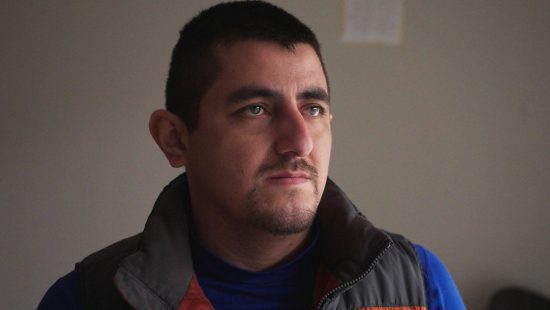In the middle of persistent inflation and deep economic uncertainty, Americans are becoming increasingly burdened by debt.

Debt is not just a financial matter—it affects mental health, self-esteem, and even physical well-being.
According to mental health specialists, “when the economy stumbles and instability lasts for a prolonged period, anxiety intensifies.” Anxiety itself is common in today’s fast-paced world, but when it becomes chronic, it can lead to serious psychophysical health problems.
Dr. Luisa Torres, a clinical psychologist specializing in financial stress, explains: “Debt creates a constant mental load. It’s not just about numbers—it’s about identity, security, and self-worth.”
When a person falls into debt and can’t make payments, their self-esteem often plummets. They may feel incapable or like they are failing, creating a direct link between financial strain and declining health.
One of the most alarming trends in the U.S. is that many people now hold more than one job and still struggle to make ends meet.
In previous decades, poverty and debt were largely associated with unemployment. Today, we see a growing number of “working poor”—people who are fully employed, yet remain financially insecure.
- U.S. Census data shows that in 2023, nearly 12.4% of the population lived in poverty, and a significant portion were employed full-time.
- For Latinos, the poverty rate is higher—around 17.6%, despite higher labor force participation than other groups.
Key drivers for Latinos:
- Overrepresentation in low-wage sectors such as hospitality, agriculture, and construction.
- Limited access to affordable credit and higher exposure to predatory lending.
- Wage stagnation that hasn’t kept up with inflation, especially in urban areas like Los Angeles, Houston, and Miami.
Living “trapped in debt” and surviving paycheck-to-paycheck makes it hard to see a promising future or plan for long-term goals.
This creates what financial therapists call “survival mode thinking”—where all mental energy is spent on immediate needs, leaving little room for emotional connection, rest, or creativity.
Sarah Newcomb, PhD, a behavioral economist at Morningstar, notes: “Chronic financial strain uses the same mental resources needed for problem-solving, empathy, and long-term planning. It’s why people under debt stress often feel stuck.”
Symptoms of this cycle include:
- Insomnia and poor sleep quality.
- Unhealthy eating habits due to stress and time constraints.
- Constant muscle tension and physical fatigue.
- Withdrawal from social connections out of shame or lack of energy.
Breaking the Cycle: Expert Advice
- Debt Prioritization Plans
- Experts recommend listing debts from smallest to largest and focusing on paying off the smallest first to build momentum (the “snowball method”).
- Nonprofit credit counseling agencies can help negotiate lower interest rates—services that many Latinos are unaware are available in Spanish.
- Community-Based Support
- Latino community organizations often provide free workshops on budgeting, debt management, and emotional resilience.
- Faith-based groups can offer both emotional support and small emergency funds.
- Mental Health Check-ins
- Seeking therapy—even short-term—can help address the shame and anxiety linked to debt. Many states now offer low-cost or bilingual telehealth mental health services.
- Employer Advocacy
- For Latino workers in low-wage sectors, advocating for wage transparency, fair scheduling, and benefits can reduce the need for multiple jobs.
Debt-related stress can be particularly heavy in Latino households because of “familismo”—a cultural value that emphasizes family responsibility. This often means sending money abroad, supporting extended relatives, or helping younger family members pay for education. While these commitments are rooted in solidarity, they can deepen financial strain.
Bottom line: Economic instability and debt are not just numbers on a spreadsheet—they’re shaping the emotional and physical well-being of millions, with Latinos facing compounded challenges. Addressing the crisis requires both financial strategies and culturally sensitive mental health support.








